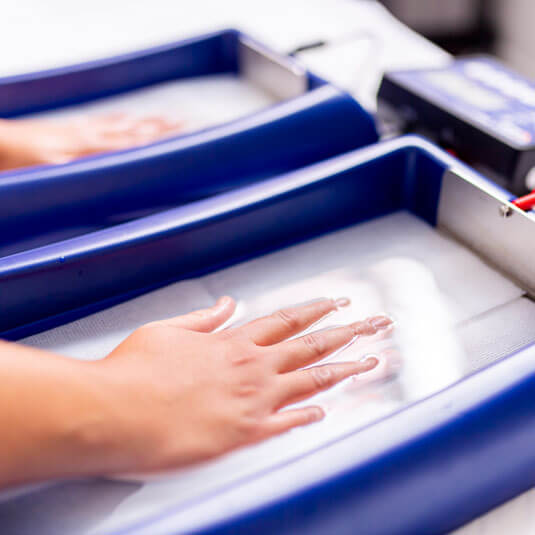Understanding Excessive Sweating: Dermatology Insights on How to Stop Sweaty Hands
Understanding Excessive Sweating: Dermatology Insights on How to Stop Sweaty Hands
Blog Article
Comprehending the Root Causes of Excessive Sweating and Its Effect On Every Day Life
While it is typically recognized as a physiological action to control body temperature level, the triggers for excessive sweating can differ commonly among people, encompassing not just physical aspects however psychological and likewise psychological elements. By delving into the root triggers of hyperhidrosis and discovering its complex impacts, a much deeper understanding of this prevalent problem can be acquired, dropping light on the intricacies that individuals grappling with extreme sweating browse on an everyday basis.
Physiology of Sweat Glands
The regulation of sweat manufacturing, an important physical procedure, is largely managed by the task of gland dispersed across the body. Sweat glands are classified into 2 primary kinds: eccrine and apocrine glands. Eccrine glands are the most many and are located in mostly all areas of the body. They play a crucial duty in thermoregulation by producing a watery liquid onto the skin's surface, which aids and vaporizes cool down the body down. On the other hand, apocrine glands are focused in locations abundant in hair follicles, such as the underarms and groin, and their secretions are thicker and milky in look.
When the body temperature climbs, either as a result of exercise, high temperatures, or emotional tension, the worried system sets off the gland to create sweat. This sweat is made up largely of water and electrolytes like sodium and chloride. The process of sweat manufacturing is essential for maintaining the body's inner temperature within a narrow, optimum array, highlighting the crucial role gland play in human physiology.
Triggers for Excessive Sweating
In recognizing the source of too much sweating, it is vital to recognize the triggers that can result in this physical feedback. Extreme sweating, also understood as hyperhidrosis, can be motivated by various variables, both physiological and ecological. One common trigger is emotional tension or anxiousness, which can promote the body's sweat glands to create more sweat than is essential for cooling. Physical effort, high temperature levels, and spicy foods are also understood to set off too much sweating in people vulnerable to this condition. Certain clinical conditions like diabetes mellitus, hyperthyroidism, or menopause can contribute to excessive sweating as well.
In addition, drugs such as some antidepressants, opioids, and specific supplements can also act as triggers for hyperhidrosis. Comprehending these triggers is important in taking care of excessive sweating properly - How to stop sweaty hands. By determining and resolving the details triggers that motivate excessive sweating in an individual, health care suppliers can establish individualized therapy strategies to reduce this condition and boost the individual's lifestyle
Medical Conditions Associated
Connected with extreme sweating are different clinical conditions that can intensify this physiological feedback. One usual condition is hyperhidrosis, a problem defined by abnormally increased sweating that surpasses the body's thermoregulatory needs. This can show up in focal areas like the hands, soles, underarms, or face, affecting an individual's quality of life due to social embarrassment and discomfort.
Additionally, endocrine problems such as hyperthyroidism, diabetes, and menopausal hot flashes can likewise cause too much sweating. Hyperthyroidism triggers an overflow of thyroid hormones, accelerating metabolic rate and setting off sweating. Diabetic issues can induce sweating episodes, specifically during hypoglycemic episodes when blood sugar levels drop as well low. Menopausal hot flashes, attributed to hormonal variations throughout menopause, can create intense and you can look here abrupt sweating, typically gone along with by flushing and heart palpitations.
In addition, infections like hiv, endocarditis, and consumption have been associated with night sweats, a typical symptom recognized to interfere with rest and impact overall well-being. These medical problems highlight the varied variety of underlying variables that can add to extreme sweating, requiring complete analysis and monitoring by healthcare specialists.
Psychological and Mental Variables

Influence On Social Communications
Too much sweating can have extensive results on an individual's ability to engage easily in social interactions. The visible indicators of sweat stains or wet patches on clothes can bring about embarrassment and self-consciousness, causing people to withdraw from social situations. This withdrawal can affect connections, limit social tasks, and prevent professional and individual development.

Furthermore, the anxiety and self-confidence concerns coming from extreme sweating can impact communication and interpersonal abilities. People might have a hard time to focus on conversations, get involved in team tasks, or reveal themselves with confidence. This can result in feelings of seclusion and loneliness, as social connections come to be testing to maintain.
Verdict

While it is commonly recognized as a physiological response to control body temperature level, the triggers for extreme sweating can differ commonly among individuals, incorporating not just physical variables however also psychological and emotional components. By diving into the origin creates of hyperhidrosis and exploring its multifaceted results, a much deeper understanding of this pervasive concern can be gotten, shedding light on the intricacies that individuals grappling with excessive sweating browse on an everyday basis.
Physical exertion, high temperature levels, and spicy foods are likewise recognized to activate excessive sweating in people susceptible to this problem. By determining and dealing with the specific triggers that trigger excessive sweating in a specific, health care companies can develop individualized treatment strategies to reduce this problem and improve the person's quality of life.
Too much sweating can have profound impacts on a person's ability to involve conveniently in social communications.
Report this page